Russia attacks New-York and Toretsk in Donetsk Oblast, killing civilians – Ukrainska Pravda photo report

The Russian army began its offensive on the Toretsk front at the end of June. This is the last section of the front where the line of contact remained where it had been during the Anti-Terrorist Operation (ATO) and Joint Forces Operation (JFO) [the combat action against Russian military forces and pro-Russian separatists in parts of Donetsk and Luhansk oblasts from 2014].
An Ukrainska Pravda source familiar with the situation on this front said there were two reasons why the offensive had been possible.
First, Ukrainian intelligence had not detected the build-up of Russian forces and resources from the side of occupied Horlivka, even though information about a possible offensive on Toretsk had emerged as early as the beginning of May.
Second, the Russians took advantage of a rotation in Ukrainian units when the 24th Brigade left Toretsk for Chasiv Yar and the 41st Brigade moved from Chasiv Yar to Toretsk. The Russians launched an offensive, which unfortunately was successful.
The Ukrainian OSINT project DeepState reported on 21 June that the Russians had managed to capture the tiny village of Shumy, near Toretsk. On 28 June, they advanced into part of the neighbouring village of Pivdenne.
According to DeepState, the distance from the farthest Russian positions to the border of Toretsk has decreased from 5 km to 2 km over the past week and a half. The Russians are 700 m away from the southern edge of the town of New-York – although they have been there since 2022.
According to the US Institute for the Study of War, the intensification of Russian activity in Donetsk and the simultaneous decrease in attacks in Kharkiv may indicate that they are making preparations for a summer offensive, or even starting one.
The Russian offensive has led to daily artillery shelling and guided bomb strikes on the settlements of New-York and Toretsk.
Until recently these two settlements, unlike most frontline towns, could enjoy the benefits of civilisation, having access to electricity, communications and 4G internet.
But over the past week and a half, they have been covered with even more craters, devastated buildings and, saddest of all, dead local residents.
Four civilians were killed in Russian attacks on New-York on 28 June. Three others were injured, including an 8-year-old girl. Locals began calling volunteers and asking to be evacuated.
Ukrainska Pravda, together with volunteer Yevhen Tkachov, were working in New-York and Toretsk during the days when the Russian attacks were at their most intense. Our photographs aim to show how the attacks have devastated these two Ukrainian settlements and their residents.
A projectile from a Grad multiple-launch rocket system stuck in the tarmac in front of a petrol station at the entrance to the town of New-York.
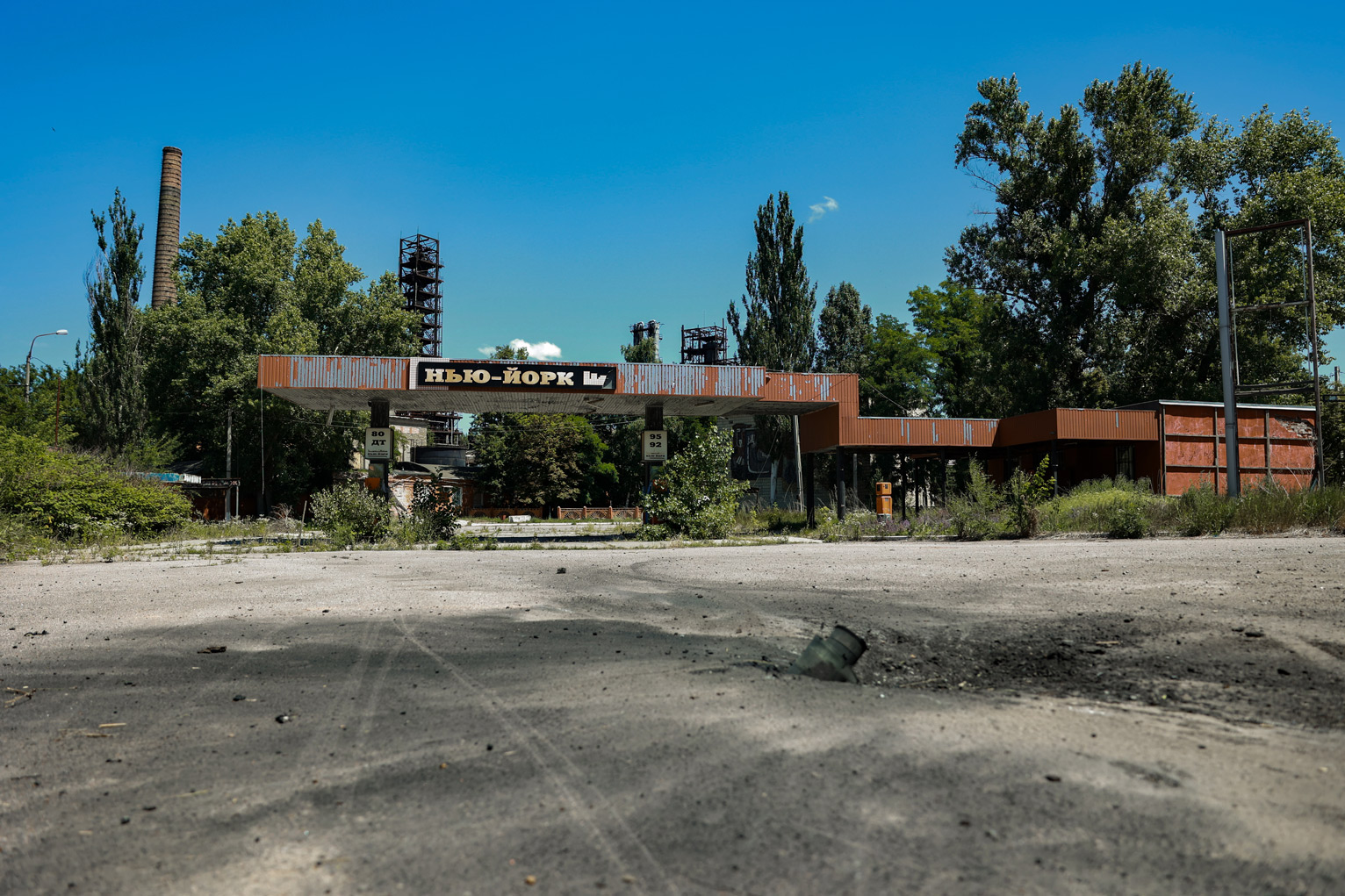
New-York resident Yurii Fedorovych, who is 75 and has a visual impairment, greets volunteer Yevhen Tkachov, who is here to evacuate people from New-York.

Yurii Fedorovych combs his hair before being evacuated. Off-camera, his wife Halyna is packing dozens of bags with belongings. Neighbours who have come to see them off tell Ukrainska Pravda, laughing, "They'll be back! This is the third time they’ve left."
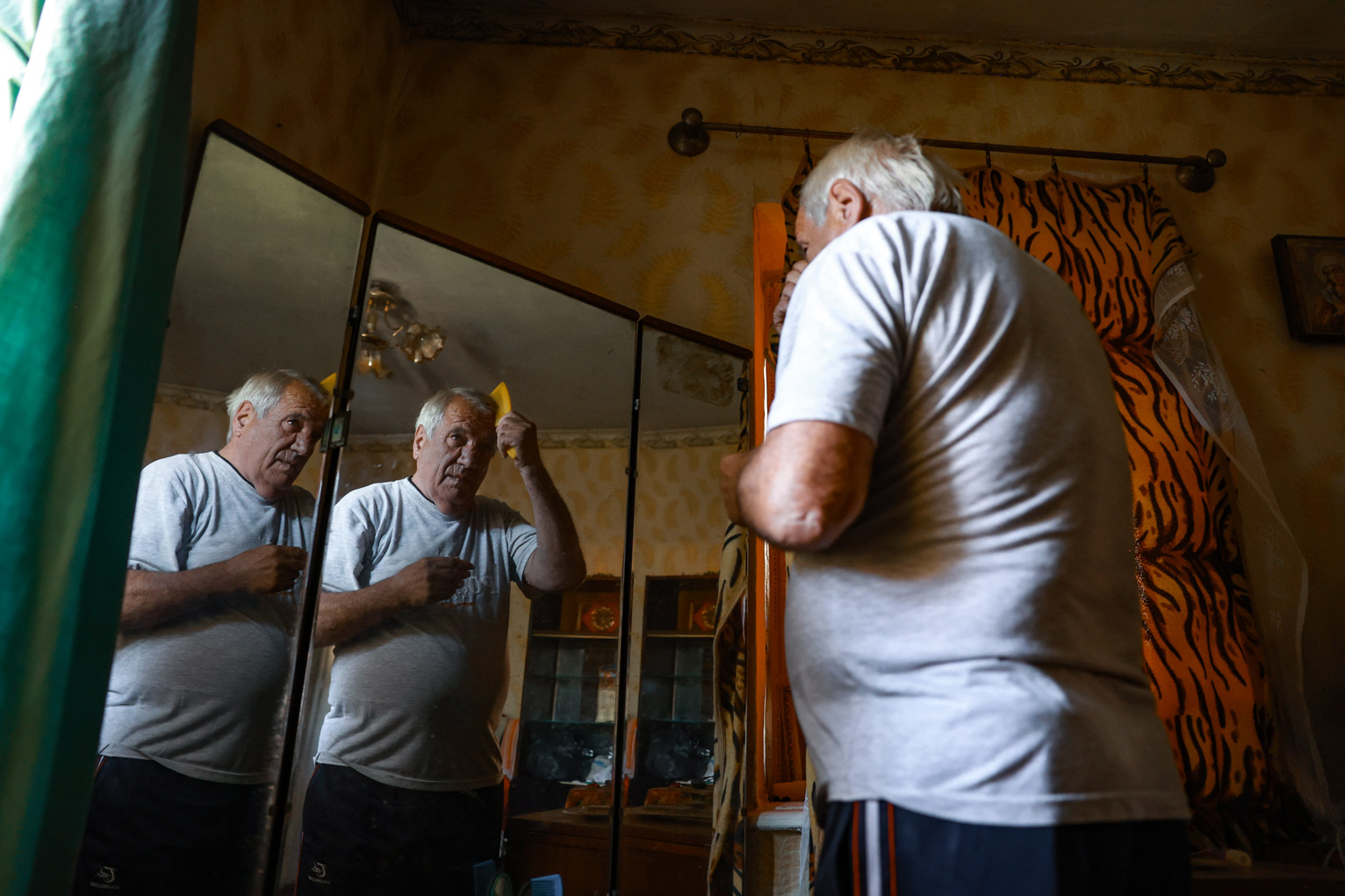
Raisa Maksymivna, 70, is evacuated from New-York with her 49-year-old daughter Yana, who has been disabled since childhood. Raisa was discharged from hospital a week ago after suffering a stroke. The fence around their house is pitted with old holes made by flying debris.
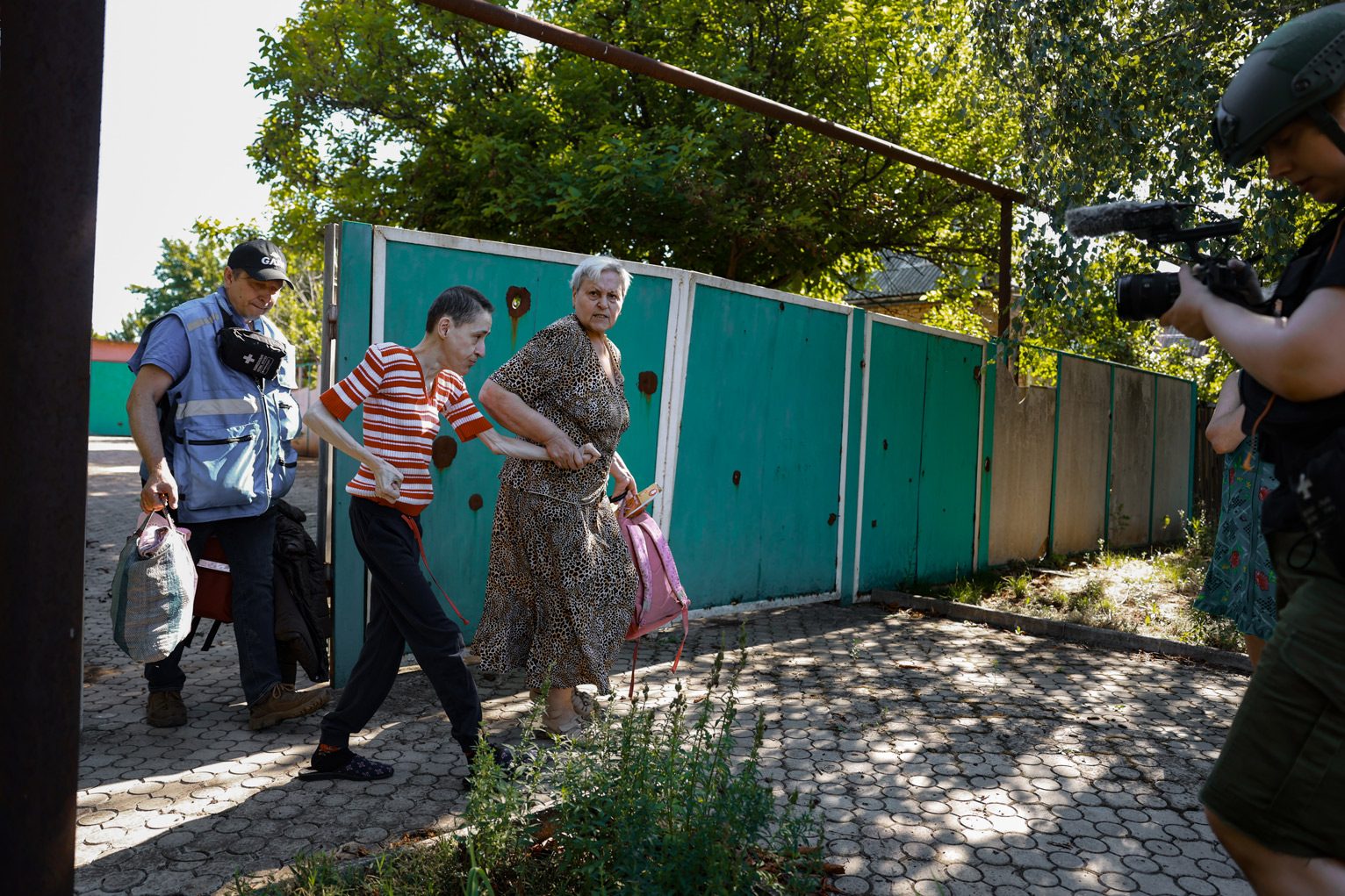
Sitting in the evacuation volunteer’s car, Raisa Maksymivna fans herself with an 8th-grade Atlas of World History (Modern Times). It’s baking hot outside, with temperatures above 25 degrees Celsius.
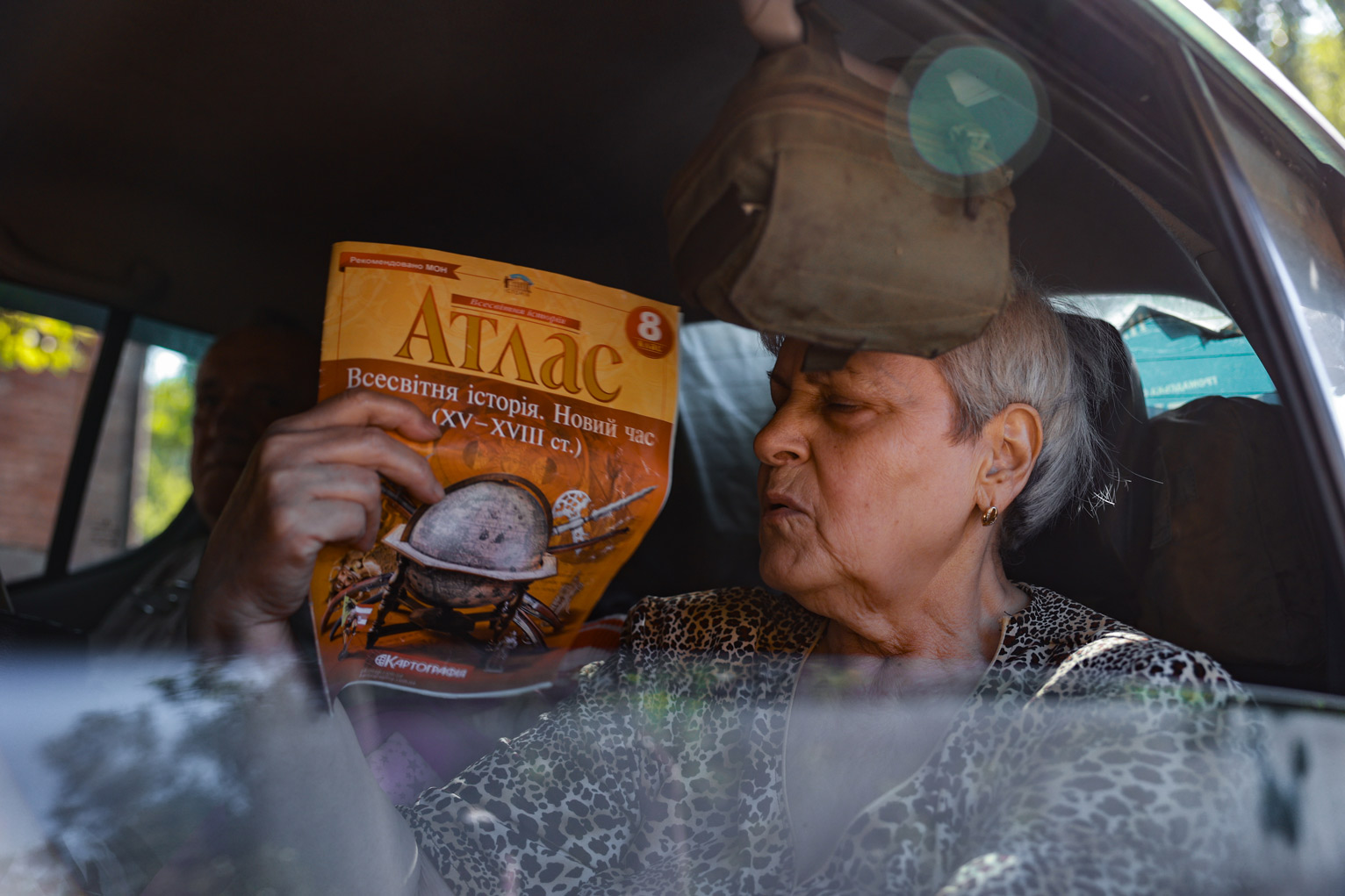
Raisa Maksymivna’s neighbour Olena watches as Raisa is evacuated and worries that she herself may not be able to leave the town in time. Olena has packed her belongings and documents, but she needs to wait for her husband to come back from work at the mine.
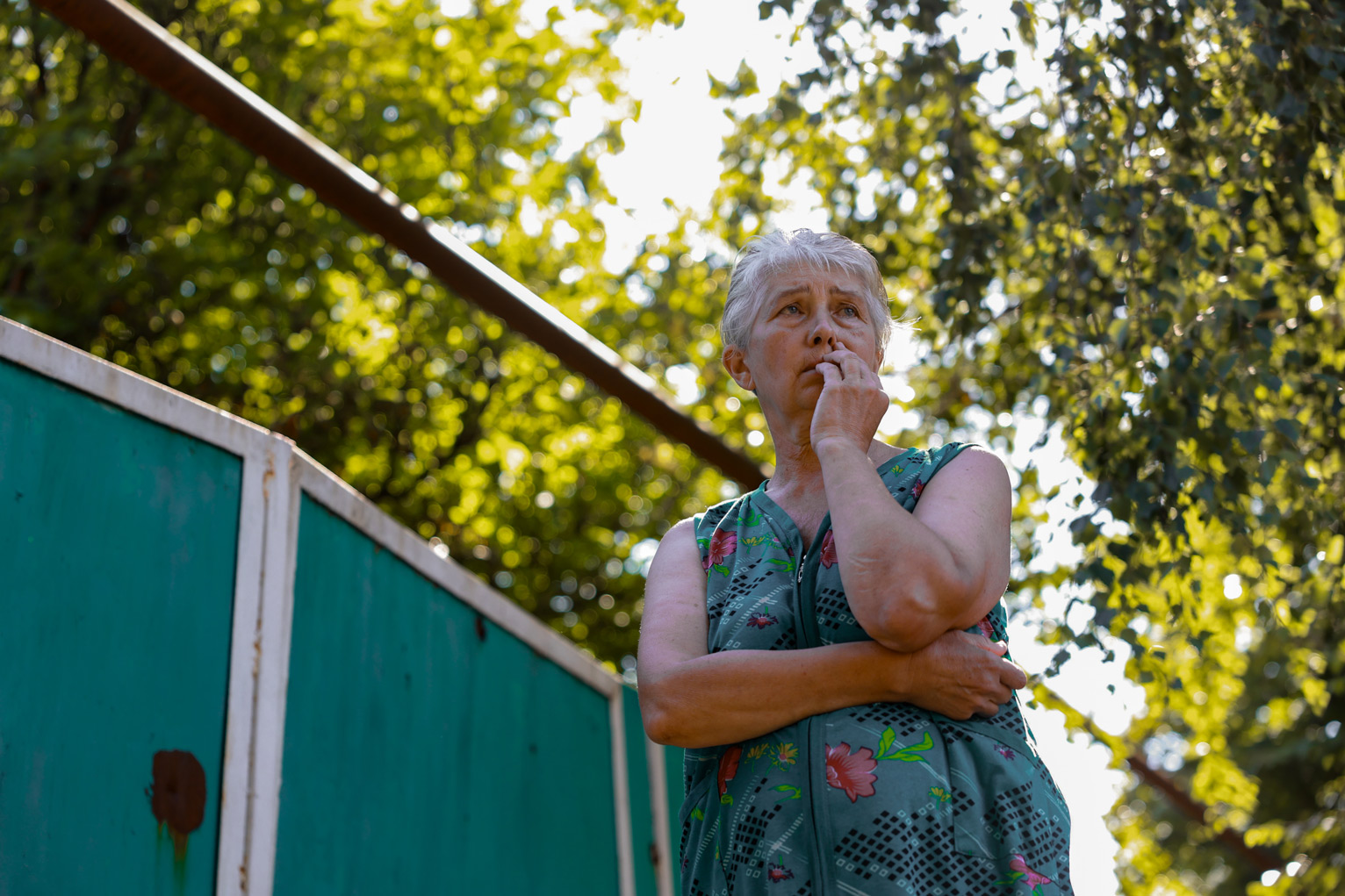
A few hours after this photo was taken, volunteer Yevhen Tkachov let Ukrainska Pravda know that he managed to evacuate Olena, her husband and their neighbour during his second evacuation trip to New-York.
A stray dog in New-York hides between the fences.
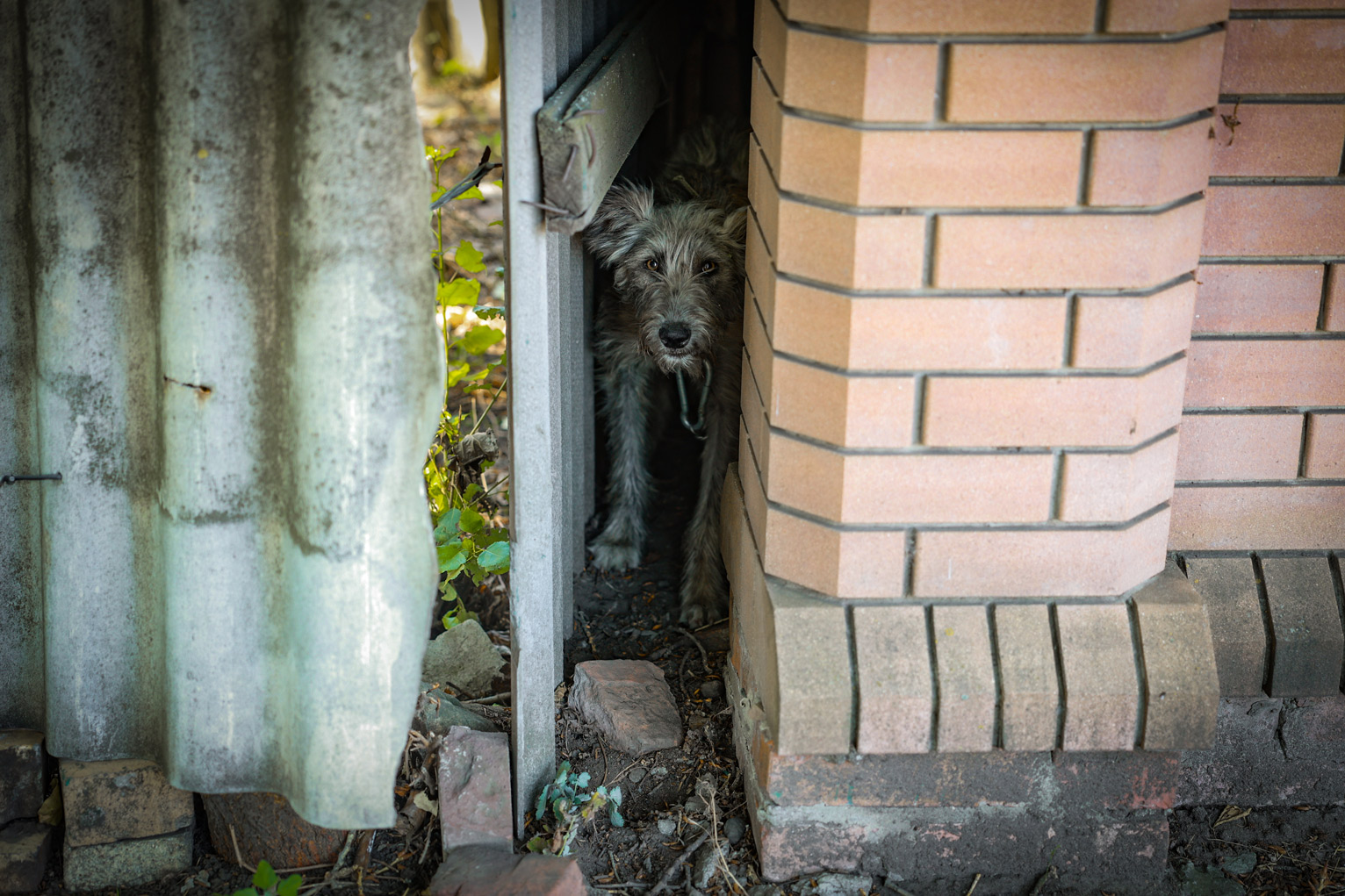
Ukrainian infantry on the streets of New-York. The soldiers had just left their positions and were heading to one of the shops that are still open to buy water and food. The town centre hums with the sound of power generators. The shops accept payment by card as well as in cash.
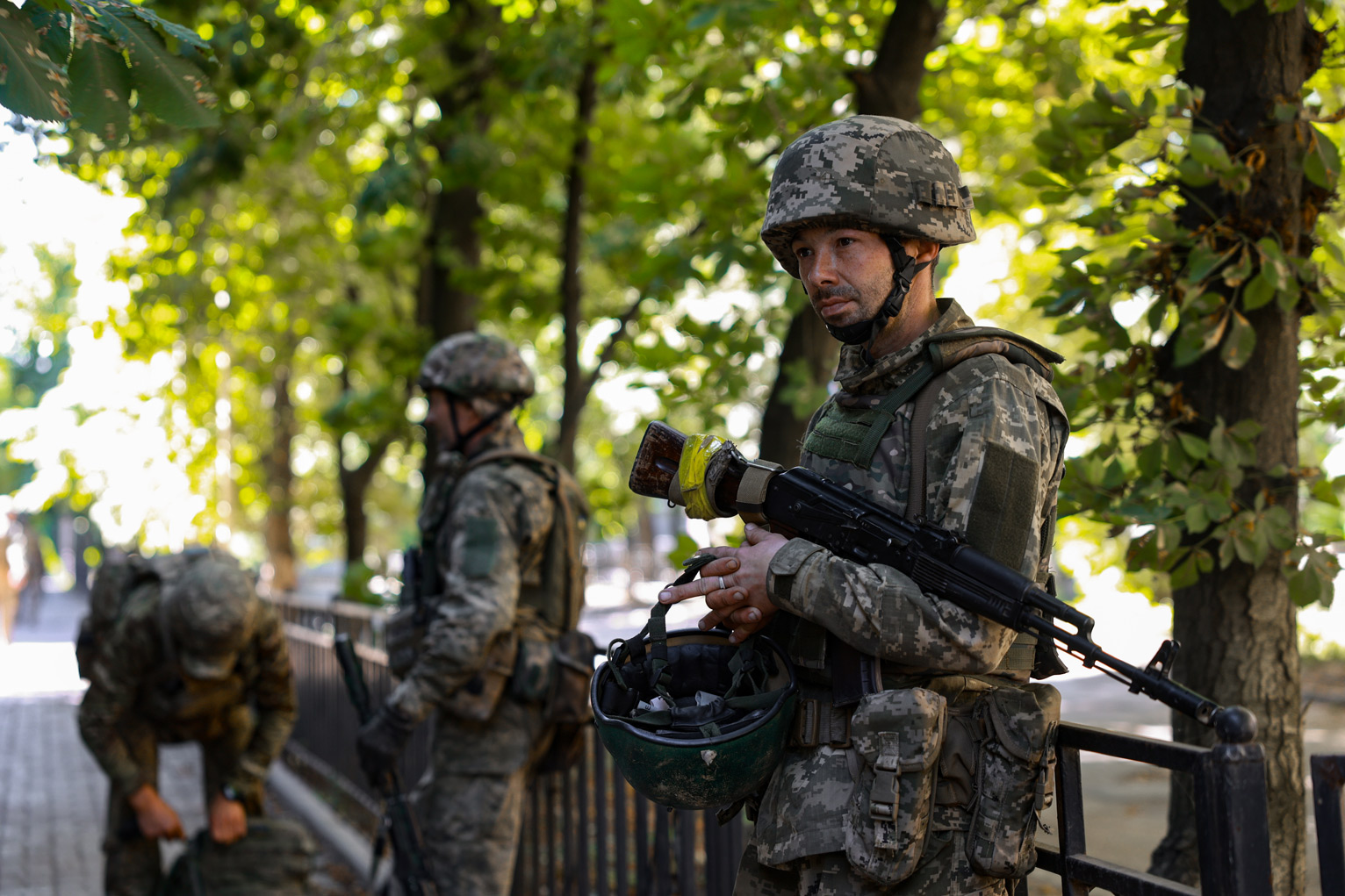
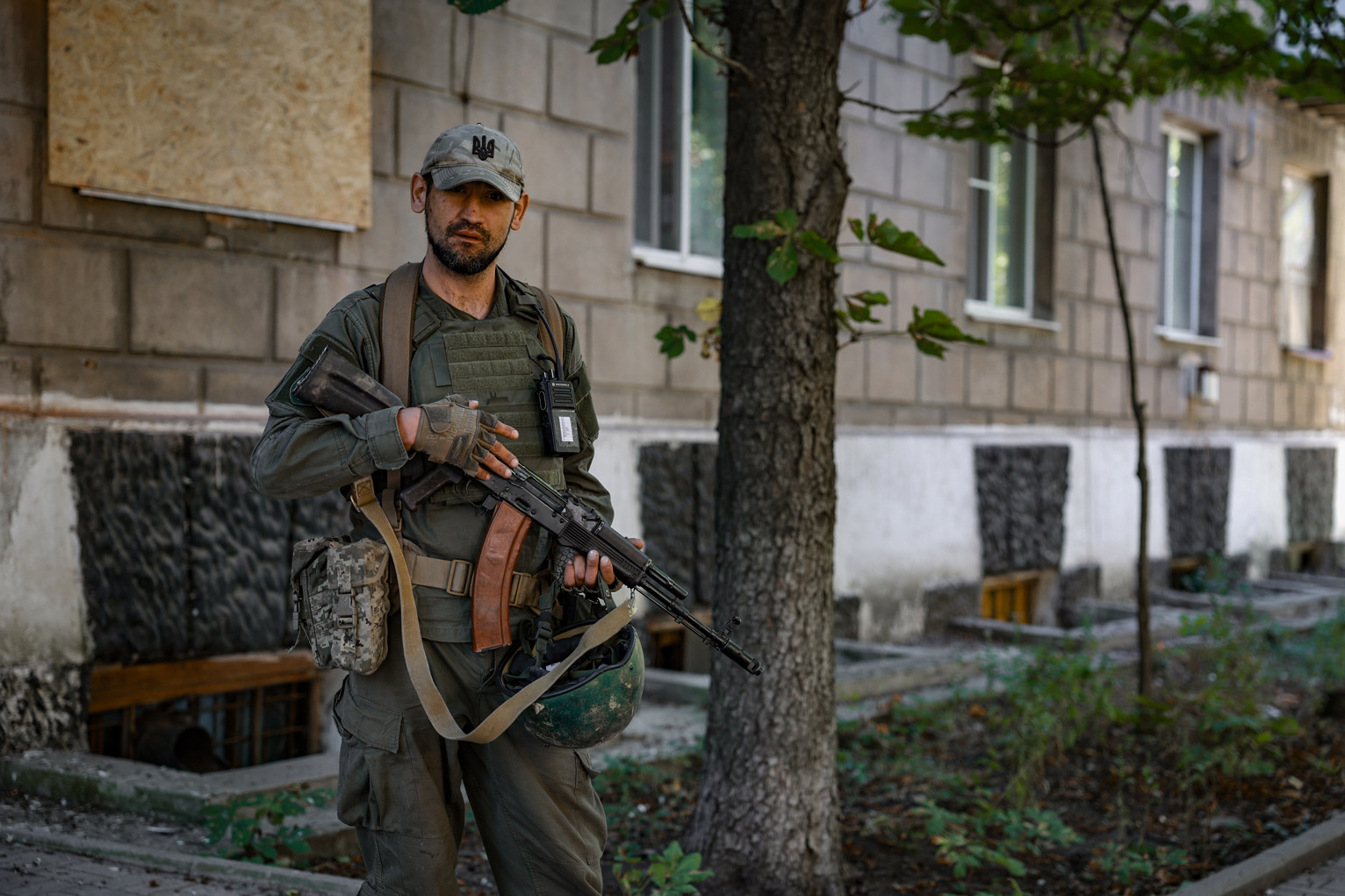
Despite having been located quite close to the front (4 km) for a long time, New-York seemed to have retained many signs of peaceful life. For example, it had electricity just four or five days ago.
A view of the skyline with burning high-rise buildings in New-York. The area has borne the brunt of Russian attacks in recent days.
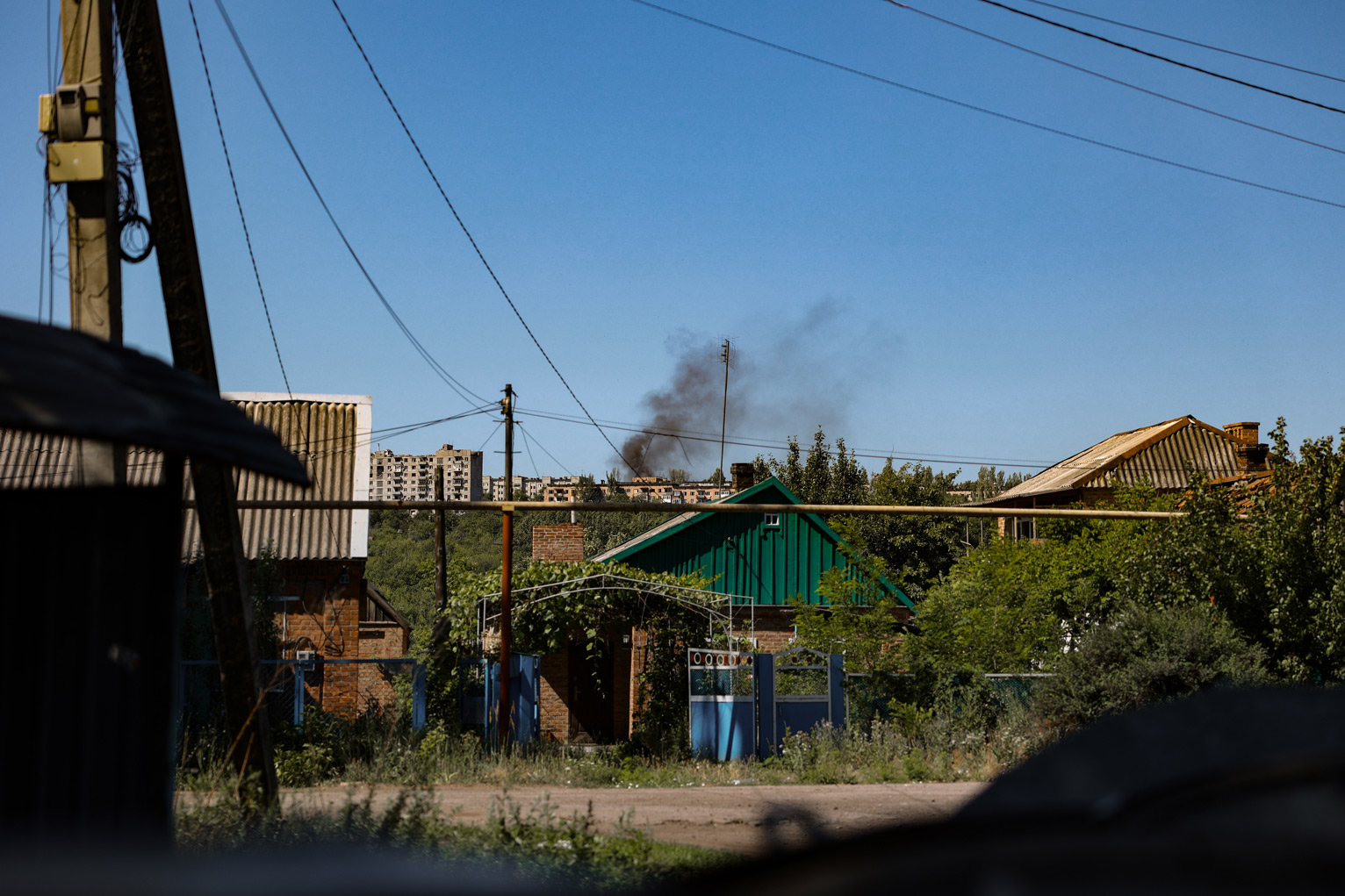
An apartment block on Yesenina Street that has been gutted by Russian attacks. The height at which it is located is where the Russians fire the most.
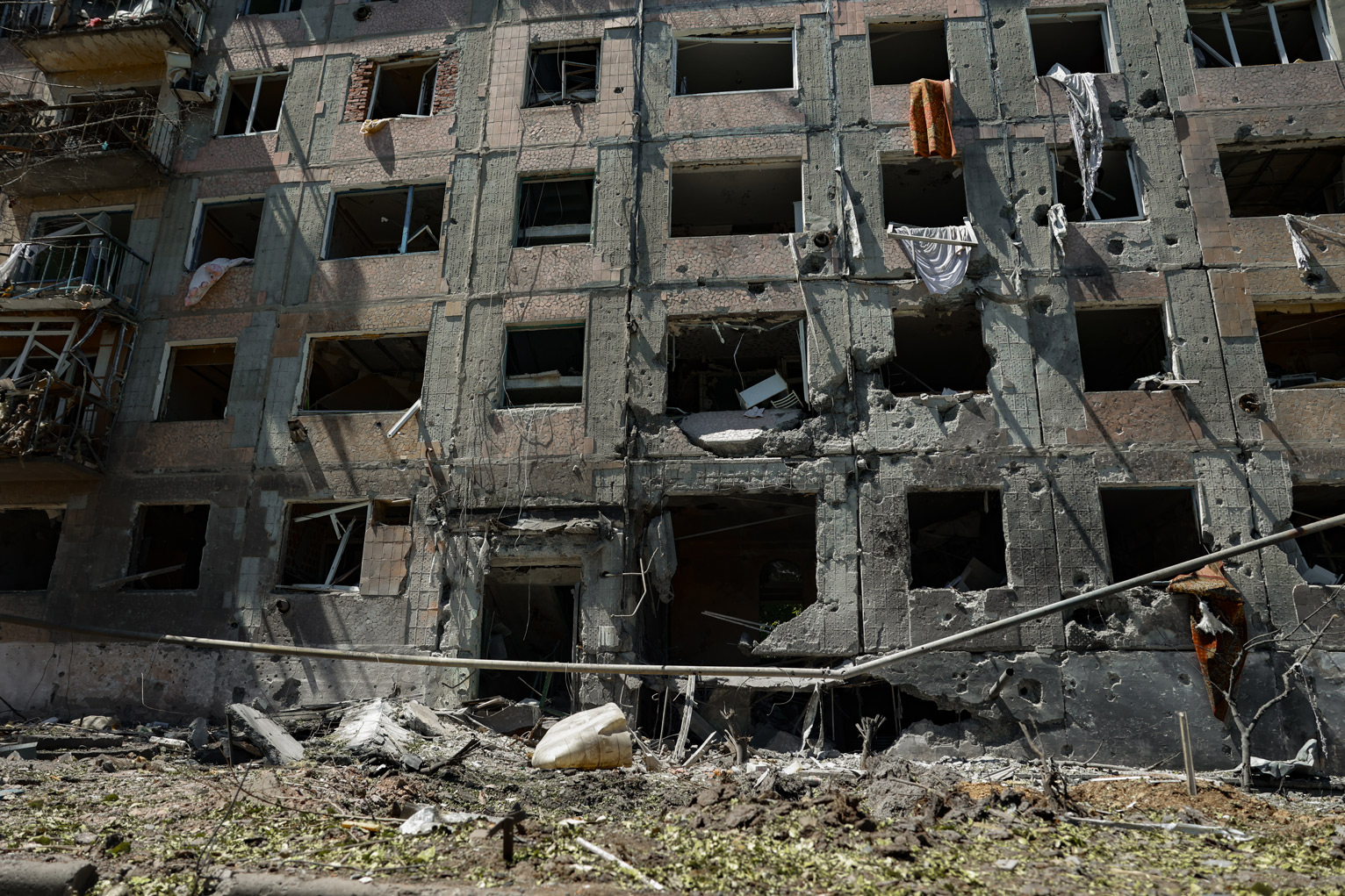
Ляльки на гойдалці біля одного з уцілілих будинків Нью-ЙоркаDolls on a swing outside one of the apartment buildings in New-York that has managed to stay intact.
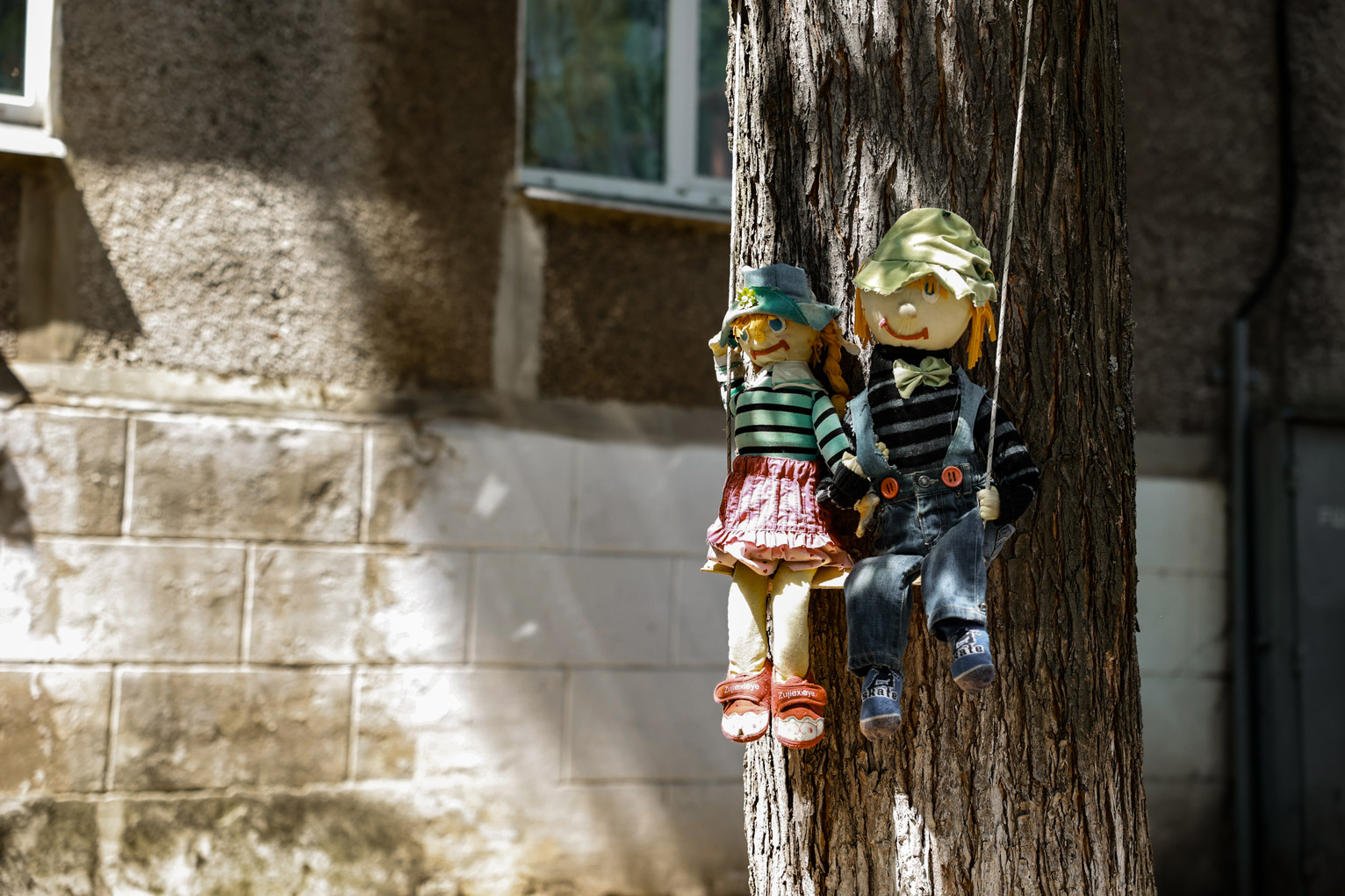
The body of a resident of New-York who was killed on 28 June outside a destroyed high-rise building. Neighbours who witnessed her death told Ukrainska Pravda that the woman had come to her high-rise building that day to check it. Then she heard a loud noise and tried to flee, but she didn't make it.
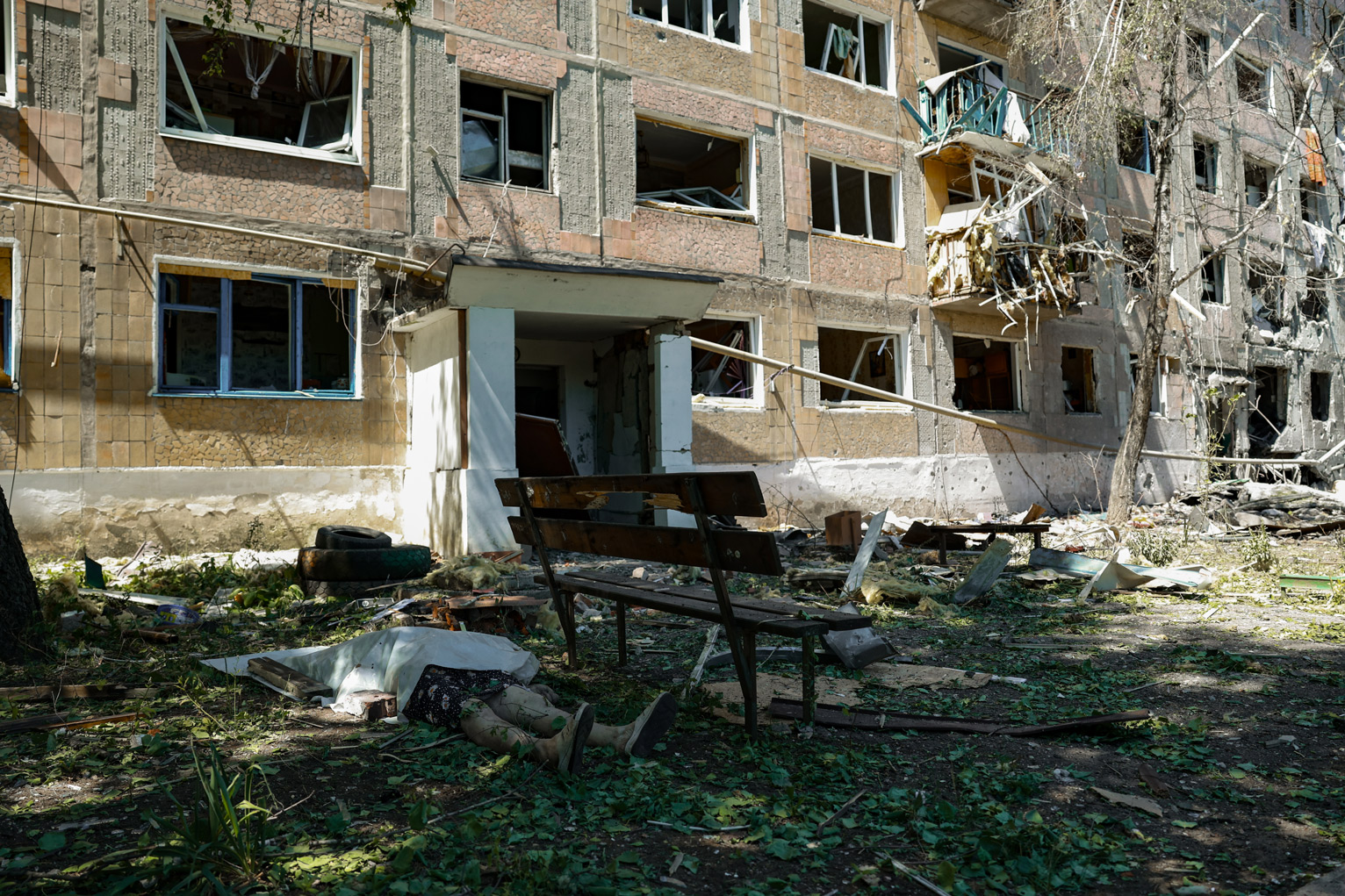
After her death, her grandson, who lived nearby, came to spend some time with his dead grandmother. He returned home and another attack claimed his life, too. Thus two members of one family died in one day.
Local resident Oleksii pulls back a sheet to show journalists the body of a man lying under a destroyed building. This is the grandson of the woman in the previous photo. Oleksii says his name was Dmytro and he was about 30 years old.
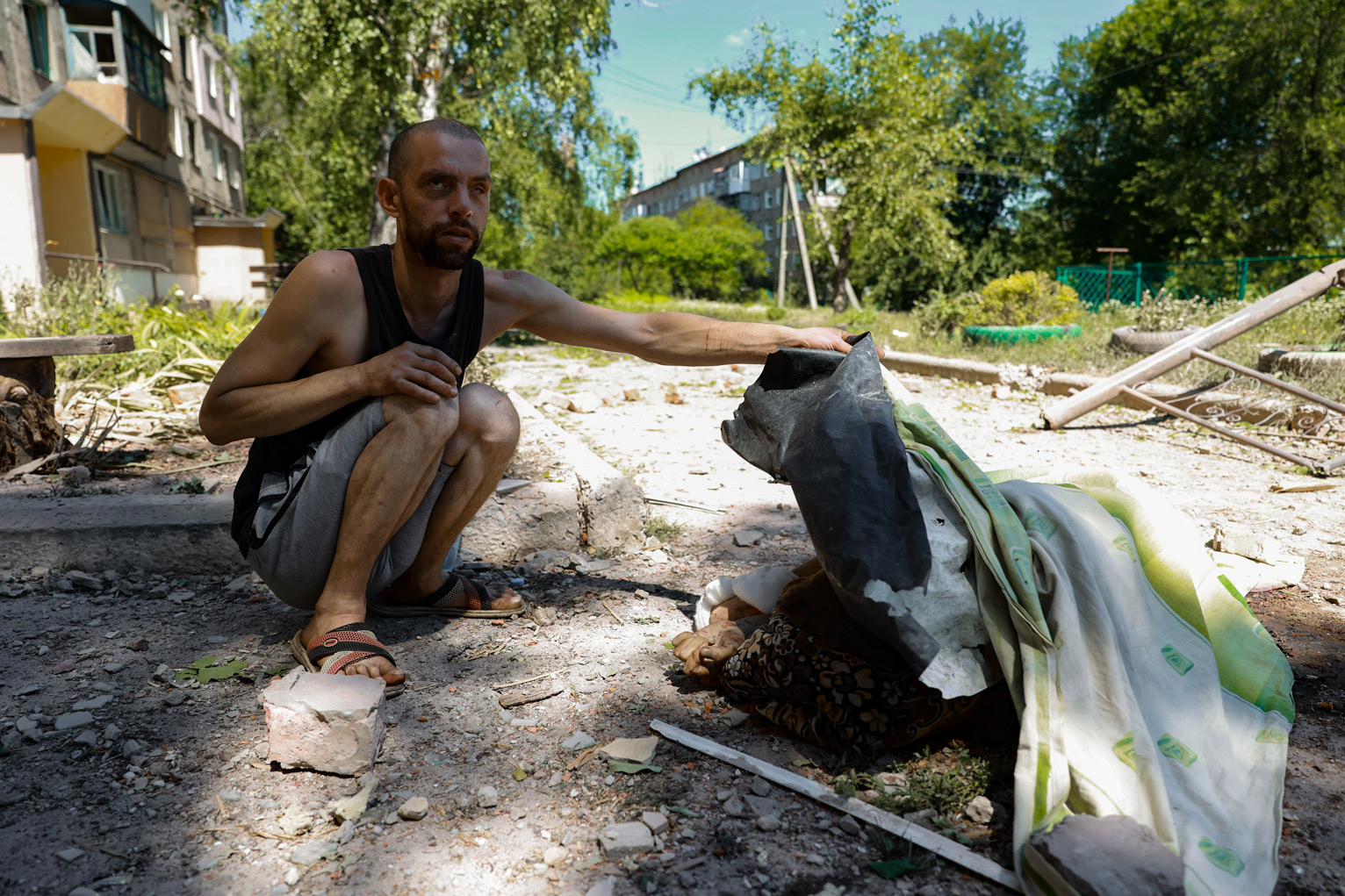
"He was trying to turn over. I was comforting him, moistening his lips. I told him to keep still, that an ambulance would come soon. But it didn't," Oleksii tells Ukrainska Pravda, covering up the body of the deceased. More and more attacks can be heard all the time.
Two burning apartment buildings in Toretsk. Probably a guided bomb has hit nearby, as everything within a radius of a few dozen metres is completely burned out. Parts of the balconies, windows and ceilings are gradually falling off the buildings and crashing to the ground.
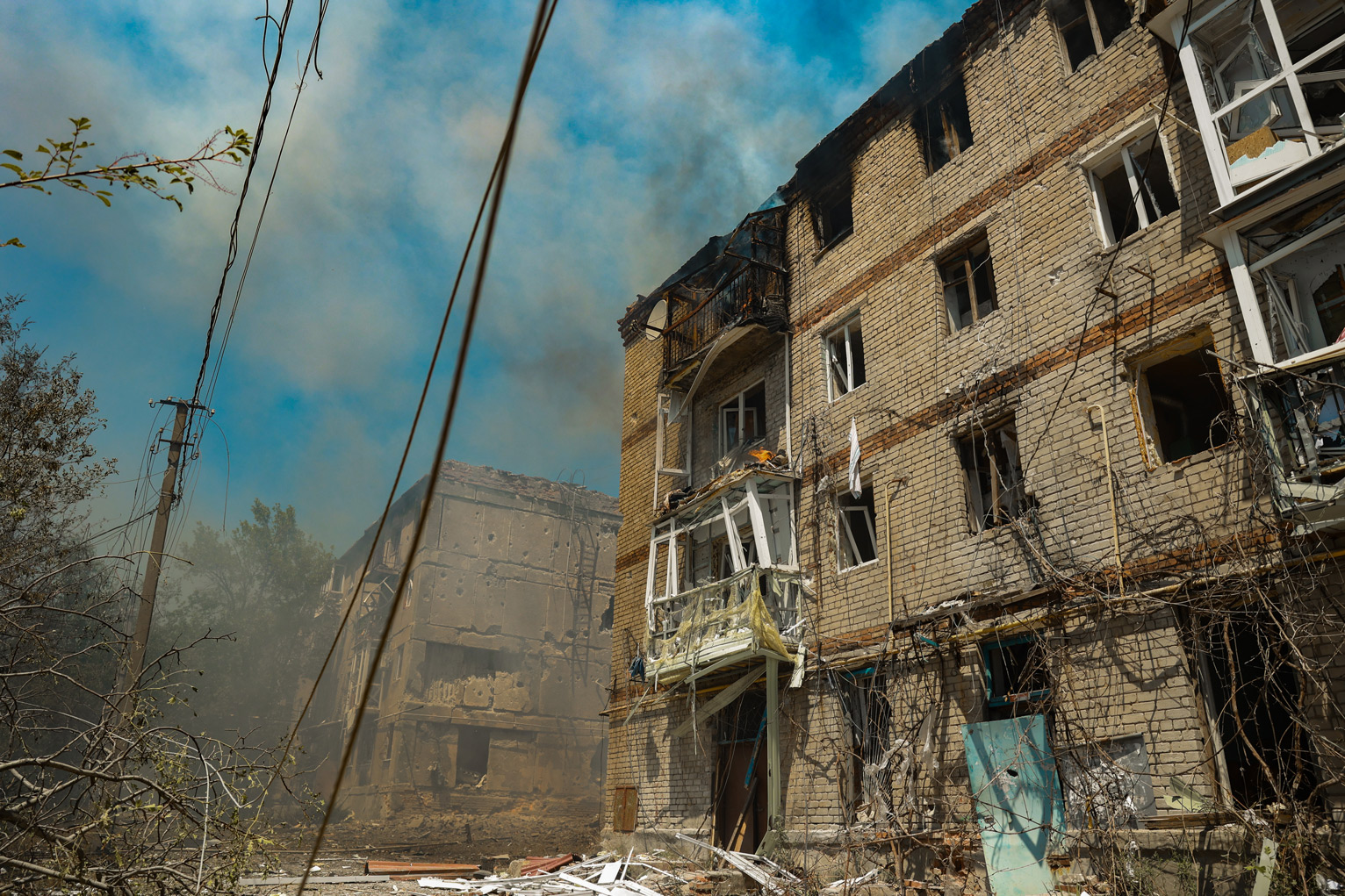
A collapsing nine-storey building in Toretsk.
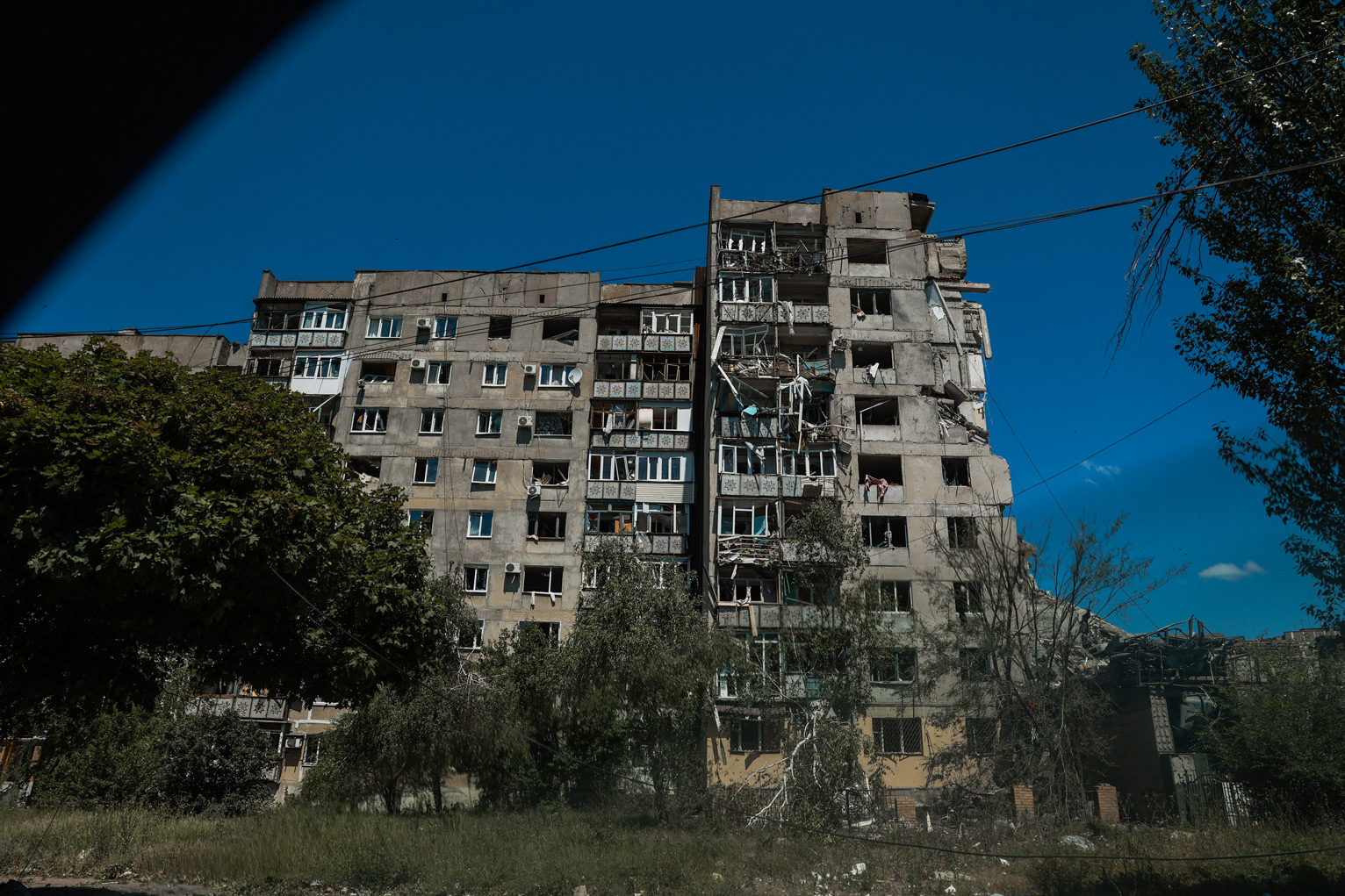
A concussed pheasant slowly crosses the road in Toretsk, shifting its weight from one leg to the other. All three cars that approach it slow down for it.

88-year-old Raisa, who has just been evacuated from Toretsk with her daughter, cries at the intermediate evacuation point. She wants so badly to go back home. Her daughter tells Ukrainska Pravda that when the Russian offensive began, Raisa said: "I’m not going anywhere, I’ll beat all of them [the Russians] off with my stick!" The medical workers begin to calm Raisa down.
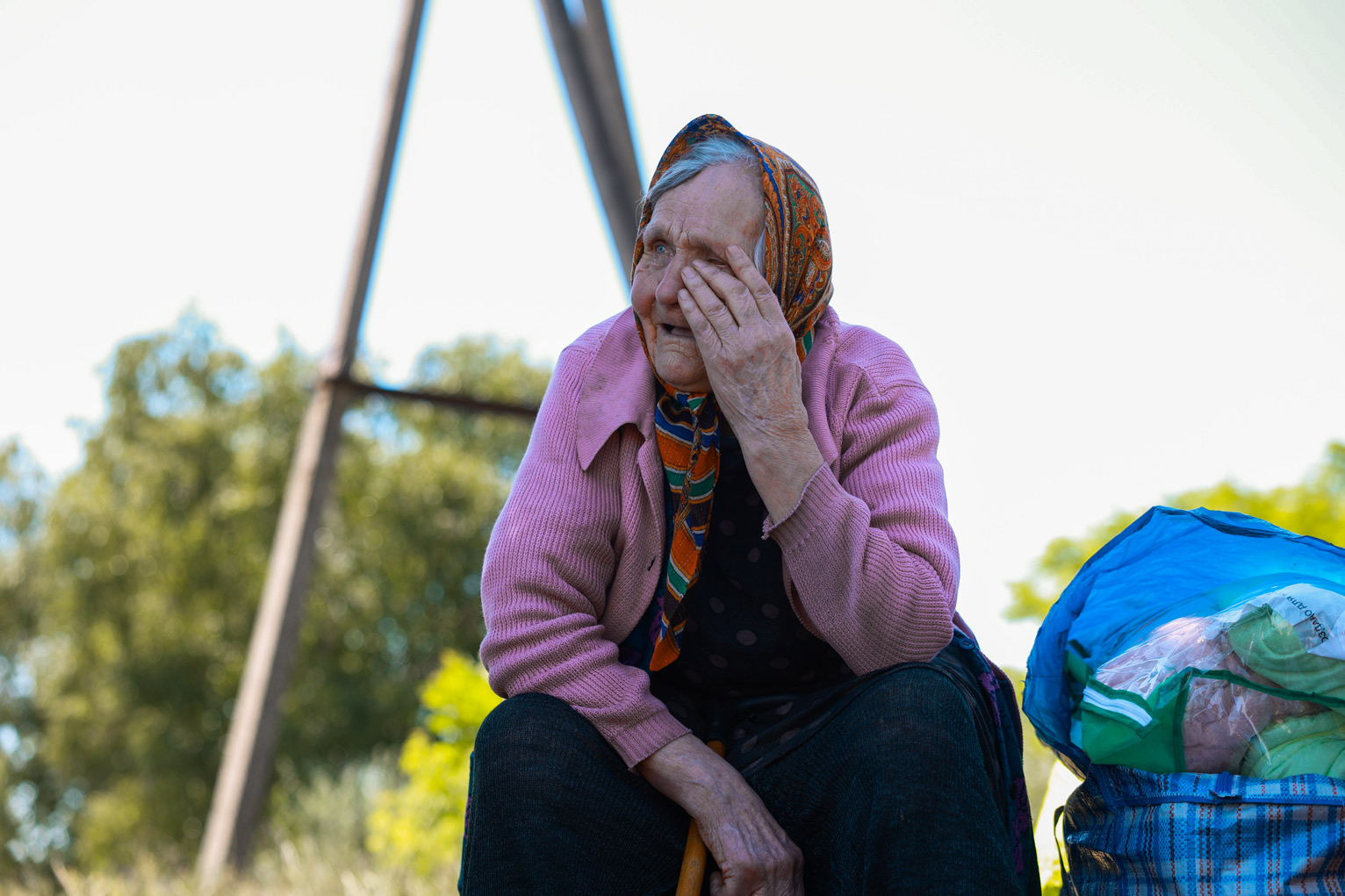
People waiting for buses at the intermediate evacuation point were talking among themselves, saying that they are "bums" now. Each took one or two bags of their belongings with them.
Photographs taken by Olha Kyrylenko and edited by Nazarii Mazyliuk for Ukrainska Pravda
Translation: Tetiana Buchkovska
Editing: Teresa Pearce
